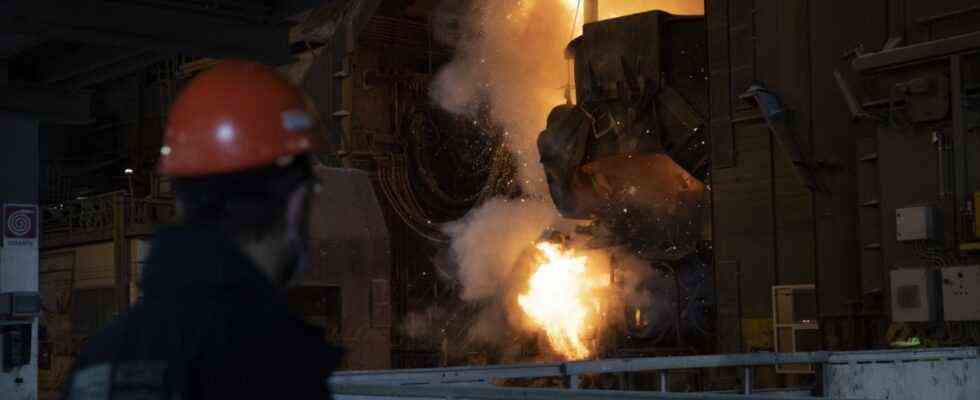It sounds like an honor when Pope Francis mentions a company in his general audience in Rome. But no, that September day did not throw a good light on Thyssenkrupp. “I express my deep concern about the dire situation of many families in Terni because of the Thyssenkrupp project,” the head of the church dismissed the largest steel manufacturer in Germany. Back in 2014, hundreds of jobs were to be lost in a Thyssenkrupp stainless steel plant in Italy. But the Pope took the company in prayer: “You don’t play with work.”
Now, seven years later, Thyssenkrupp is finally separating from stainless steel production: The industrial group will sell the plant in Umbria and the associated sales locations to the Italian steel company Arvedi. The companies have now announced that. As a result, Thyssenkrupp will soon be shrinking by a further 2,700 employees.
The emphasis is on: more. The separation from stainless steel is now the fourth sale that Thyssenkrupp has sealed this summer. In July, the Ruhr group announced that it would sell its mining equipment business such as bucket-wheel excavators. The separation from civil engineering and the sale of a carbon rim subsidiary followed in August. In total, Thyssenkrupp will lose more than 6,000 of its last 100,000 employees.
Thyssenkrupp boss Martina Merz: The engineer moved from the supervisory board to the top of the board almost two years ago.
(Photo: Wolfgang Rattay / Reuters)
But what may seem like a sell-out is definitely wanted in the glass corporate headquarters in Essen. “We are working through our priorities,” says CEO Martina Merz, “and we are making progress with our restructuring as planned.” The 58-year-old has been at the helm of Thyssenkrupp for almost two years. At that time she found a corporation that was heavily indebted after a failed expansion to America – also quite a general store from steel to submarines to stair lifts. The corona crisis made the situation even worse.
Size alone is the wrong yardstick, says CEO Merz
Merz turned “every stone in the shops”, as she likes to say. More than 6,000 jobs have been lost at Thyssenkrupp since then. Last summer, the group sold its profitable elevator division to avert over-indebtedness. “Size alone is not a relevant benchmark for us,” emphasized Merz. Instead, it is important that the businesses catch up with the best in their industry. If Merz does not trust a division, it plans to sell it or, in the worst case, to close it.
Thyssenkrupp will close a heavy plate plant in Duisburg at the end of this month. The group is also looking for buyers or partners for comparatively small businesses such as cement plant construction or springs and stabilizers.
In the case of the stainless steel subsidiary, four companies had expressed their interest, as reported by Italian media, and two locals made it into the final round. The current high prices for materials such as stainless steel have probably benefited the competition. Stock market analysts put the value of Acciai Speciali Terni (AST) at up to 600 million euros. Thyssenkrupp and Arvedi have agreed not to disclose the purchase price.
Production in Umbria: The recovery from the Corona crisis, combined with material shortages, have at least not harmed the sales process.
(Photo: OH)
Competition authorities have yet to approve the sale. Thyssenkrupp expects to complete it in the first half of 2022. Until then, the group wants to check whether it would like to keep at least a minority stake in AST. Thyssenkrupp actually parted with stainless steel production in 2012. The Ruhr group only kept the Italian subsidiary in order to meet the requirements of the competition authorities.
And what should remain after saying goodbye to Thyssenkrupp? Group boss Merz seeks salvation primarily in the trade in materials such as steel, in the automotive supply business and in industrial components that are used in wind turbines, for example. It doesn’t sound as exciting as it did back then, during the labor dispute in Terni. But you can do without criticism from the Vatican in Essen anyway.

